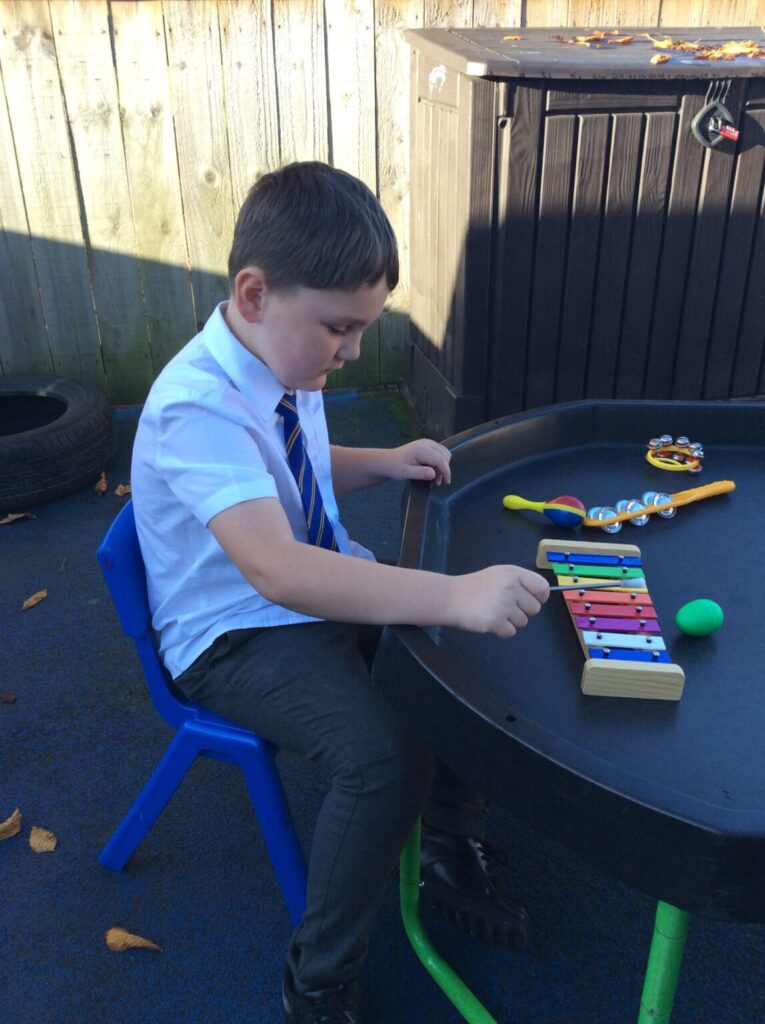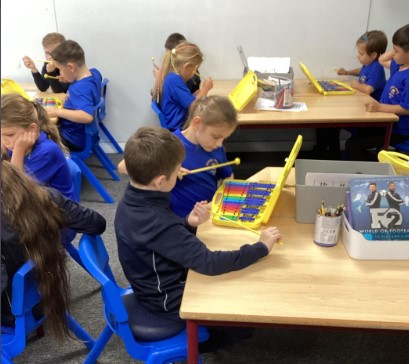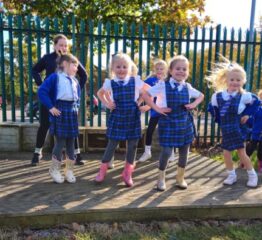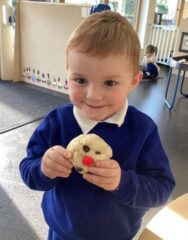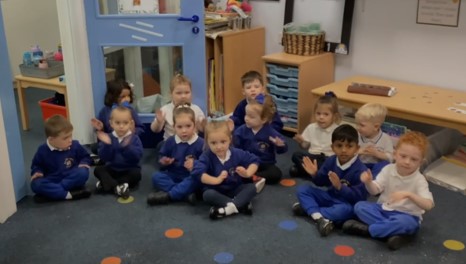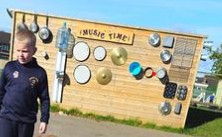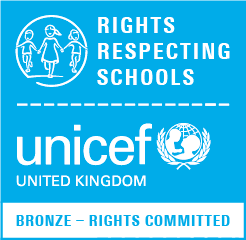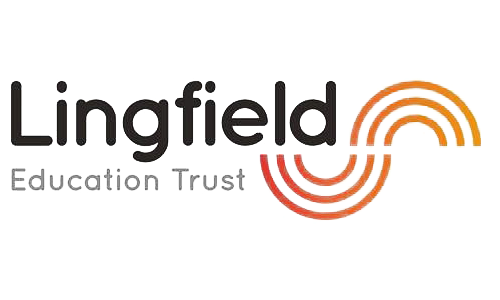“Music is the universal language of mankind.“ – Henry Wadsworth Longfellow
At Marton Manor Primary School, Music is highly valued, not only because of the skills it can allow children to develop but also due to the enjoyment that every child can gain from the subject. Our music curriculum aims to provide all pupils with a high quality music education which engages and inspires children to develop a life-long love of music, increases their self-confidence, creativity, and imagination, and provides opportunities for self-expression and a sense of personal achievement.
We believe music is a unique and powerful form of communication that plays an important part in the personal development of each pupil. Music reflects the culture and society we live in, and so the teaching and learning of music enables children to better understand the world in which we live.
Our Intent for Music at Marton Manor
- To allow all children to have the experience of learning how to play an instrument.
- To develop their self-confidence, creativity and imagination by providing opportunities for self-expression.
- To begin to feel and learn about social connectivity.
- To learn about and deepen musical understanding and connect this with their place in their community.
- To become globally aware and understand what it means to become a citizen of the world.
- To gain an understanding of historical and cultural contexts related to music.
- To form their own musical opinions and learn to make their own musical decisions.
We follow the National Curriculum at Marton Manor
Key Stage 1
Pupils should be taught to:
- Use their voices expressively and creatively by singing songs and speaking chants and rhymes.
- Play tuned and untuned instruments musically.
- Listen with concentration and understanding to a range of high-quality live and recorded music.
- Experiment with, create, select and combine sounds using the inter-related dimensions of music.
Key stage 2
Pupils should be taught to:
- Play and perform in solo and ensemble contexts, using their voices and playing musical instruments with increasing accuracy, fluency, control and expression.
- Improvise and compose music for a range of purposes using the inter-related dimensions of music.
- Listen with attention to detail and recall sounds with increasing aural memory.
- Use and understand staff and other musical notations.
- Appreciate and understand a wide range of high-quality live and recorded music drawn from different traditions and from great composers and musicians.
- Develop an understanding of the history of music.
We provide opportunities for children to develop their talents in all aspects of music including composition, singing and appreciation. The national curriculum and Marton Manor Primary School aims to ensure that all pupils:
- Perform, listen to, review and evaluate music across a range of historical periods, genres, styles and traditions, including the works of the great composers and musicians.
- Learn to sing and to use their voices, to create and compose music on their own and with others, have the opportunity to learn a musical instrument, use technology appropriately and have the opportunity to progress to the next level of musical excellence.
- Understand and explore how music is created, produced and communicated, including through the inter-related dimensions: pitch, duration, dynamics, tempo, timbre, texture, structure and appropriate musical notations.
How the Music Curriculum is designed at Marton Manor




